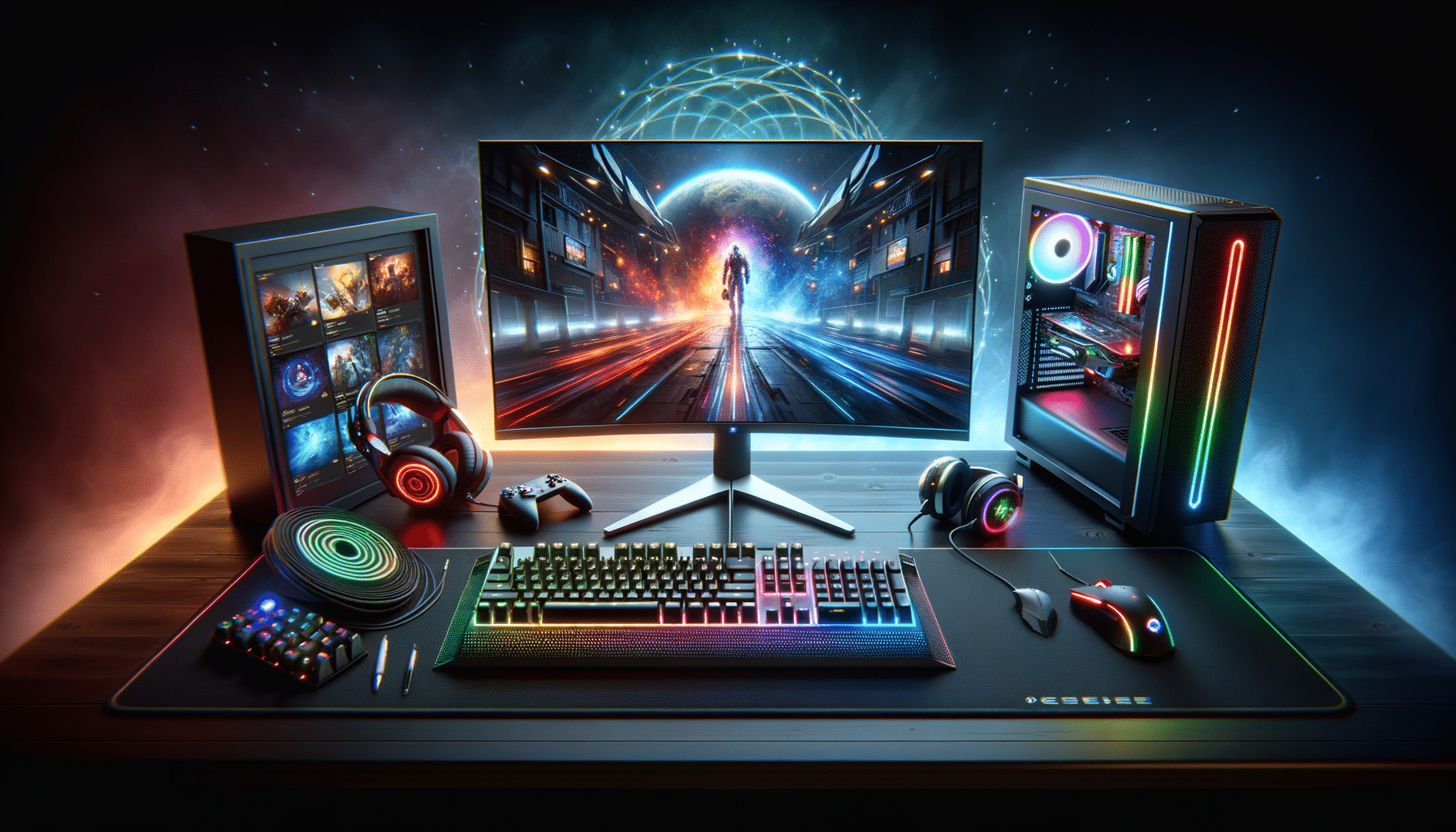Exploring the World of Gaming PCs: A Comprehensive Guide
Gaming PCs have become an essential part of the gaming ecosystem, offering unparalleled performance and customization options.

Introduction to Gaming PCs
Gaming PCs are at the heart of the gaming industry, providing the power and flexibility required to run the latest games at high settings. Unlike consoles, gaming PCs offer the ability to upgrade individual components, allowing gamers to keep their systems up-to-date with the latest technology advancements. This adaptability makes them a preferred choice for serious gamers who demand high performance and customization.
The relevance of gaming PCs in today’s digital landscape cannot be overstated. With the increasing complexity of games and the rise of virtual reality, a robust gaming PC is essential for an immersive gaming experience. Moreover, gaming PCs are not just for gaming; they are versatile machines that can handle a range of tasks, from video editing to 3D rendering, making them a valuable asset for both work and play.
Key Components of a Gaming PC
Understanding the key components of a gaming PC is crucial for building a system that meets your gaming needs. Here are the primary components to consider:
- CPU (Central Processing Unit): The brain of the PC, responsible for executing instructions and processing data. A powerful CPU ensures smooth gameplay and efficient multitasking.
- GPU (Graphics Processing Unit): Vital for rendering graphics and visual effects. A high-performance GPU is essential for running games at high resolutions and frame rates.
- RAM (Random Access Memory): Provides the necessary memory for running applications and games. More RAM allows for better multitasking and faster load times.
- Storage: SSDs (Solid State Drives) offer faster load times and quicker data access compared to traditional HDDs (Hard Disk Drives), making them a preferred choice for gaming PCs.
- Motherboard: The backbone of the PC, connecting all components and allowing them to communicate effectively.
- Power Supply Unit (PSU): Supplies power to all components, and its wattage should be sufficient to support the entire system.
Each component plays a vital role in the overall performance of a gaming PC, and selecting the right combination is key to achieving the desired gaming experience.
Building vs. Buying a Gaming PC
One of the most significant decisions gamers face is whether to build their own gaming PC or purchase a pre-built system. Both options have their advantages and drawbacks.
Building a gaming PC allows for complete customization, enabling gamers to select each component based on their specific needs and budget. This approach often results in better performance and value for money, as gamers can prioritize components that matter most to them. However, building a PC requires technical knowledge and can be time-consuming.
On the other hand, buying a pre-built gaming PC offers convenience and simplicity. These systems are assembled and tested by professionals, ensuring compatibility and reliability. Pre-built PCs often come with warranties and customer support, providing peace of mind for those less familiar with PC assembly. The trade-off is typically a higher cost and less flexibility in component selection.
Ultimately, the choice between building and buying depends on individual preferences, technical expertise, and budget considerations.
Performance Considerations for Gaming PCs
Performance is a critical factor when it comes to gaming PCs, as it directly impacts the gaming experience. Several factors influence a gaming PC’s performance:
- Resolution and Refresh Rate: Higher resolutions and refresh rates provide sharper and smoother visuals, enhancing the gaming experience. However, they require more powerful hardware to maintain optimal performance.
- Graphics Settings: Adjusting graphics settings can significantly affect performance. Lowering settings can improve frame rates, while higher settings offer better visuals at the cost of performance.
- Cooling Solutions: Efficient cooling is essential to prevent overheating and maintain performance. Options include air cooling, liquid cooling, and hybrid solutions.
Balancing these factors is crucial for achieving the desired performance level. Gamers should consider their preferred gaming genres and typical use cases when configuring their systems.
Future Trends in Gaming PCs
The gaming PC industry is continually evolving, with new technologies and trends shaping the future of gaming. Here are some anticipated trends:
- Ray Tracing and AI Enhancements: These technologies are becoming more prevalent, offering realistic lighting and improved graphics quality.
- VR and AR Integration: Virtual and augmented reality are gaining traction, requiring more powerful PCs to deliver immersive experiences.
- Energy Efficiency: As environmental concerns grow, energy-efficient components and systems are becoming more important to reduce power consumption.
Staying informed about these trends can help gamers make informed decisions when upgrading or building their gaming PCs, ensuring they remain at the forefront of gaming technology.